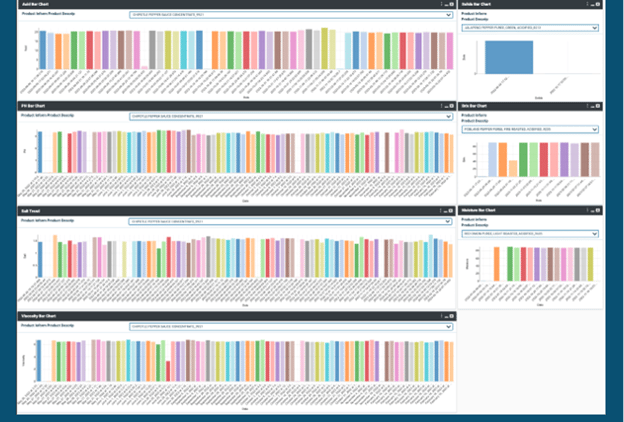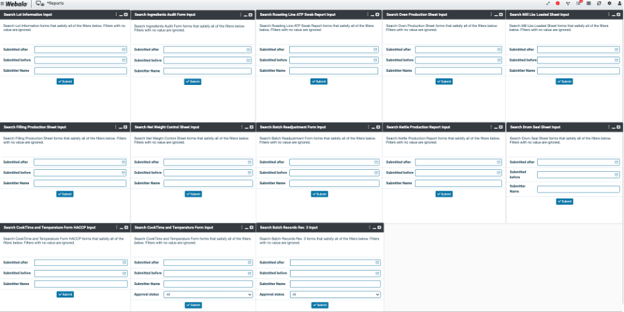The Future of Work in the Food-Processing and Beverage Industries
How Frontline Workforce Platforms Can Elevate Entire Operations to an Industry 4.0 Level
The food-processing and beverage industries have always had higher levels of process automation in order to deliver highly consistent outputs and meet stringent quality requirements. Almost all players in the industry gear their operations toward mass-producing a number of product variants and automate areas with critical quality implications and high throughput requirements.
That said, manufacturers in these industries still have a massive amount of room for digitization at the frontline-worker level. Though most companies automate key process facets, they are still reliant on paper-based forms and rely on manual entries into forms or spreadsheets for post-fact data analysis and CI activities. In a recent post, Deloitte highlighted that 95% of product suppliers in the food industry believe that teaching employees digital skills will be the most valuable move they can make over the next three years.
Manufacturers in the food and beverage industries must consider analytics, automation, and artificial intelligence skills, termed “AAA skills” by Deloitte. These are the core set of skills required to meet the technology needs of work in the future.
The Deloitte post further explains how companies need to develop a people-first mindset and ask themselves the following questions:
- Are we taking the time to think through the actual new work to be done and redesigning it in ways that will allow our people and technology to work together and perform their best?
- When redesigning work, are we putting the employee at the center and complementing their experience with new and more interesting technologies and skills?
- Is our company creating a sense of belonging for everyone? Will our approach to diversity, equity, and inclusion, our social standards, and our contributions to sustainability make it easier to win over digital talent?
- Does our company culture embrace technology or are we traditionally hesitant? How well does our leadership, from the CEO on down, model the culture we want?
Frontline Workforce Platforms Pave the Way for Digital Transformation:
When manufacturing leaders from food and beverage companies answer the questions posed by Deloitte, it will become excruciatingly evident that the worker frontline needs a huge injection of digital technology, which also presents a huge amount of opportunity.
Webalo can help food and beverage manufacturers create a Workforce Intelligence Center, which is born when all frontline workforce-related forms are digitized and tasks are connected and driven by mobile devices instead of paper-based or work station-based pass-downs. Workers can set up instant notifications and alerts on apps they build themselves. Digital workflows are created, and everything from work instructions to data collection is digital and communicated in real time. All the data collected by workers through the platform, which is connected with other enterprise applications, can be visualized in various permutations and combinations and can deliver process optimization through precise action.
Webalo digitizes and equips the frontline by aligning a plant’s entire process over a single platform while allowing stakeholders from all functional areas to leverage data from the shop floor to better plan and deliver value.
For the food-processing and beverage industries, it is essential to have digital forms that are ready for review and auditing. This leads to a smooth cycle of data collection, entry, and subsequent approval or corrective actions where applicable. Webalo allows all forms, from SOPs to regulatory documents, to be digitized and presented in the requisite or mandated formats. Further critical workflows are digitized with alerts in place to ensure adherence to specs, recipes, and protocols. The platform also allows for issue tracking, quality and safety management, and schedule-adherence or change management, all of which are collaborative.

Figure 1- Source: Webalo Inc.
Figure 1 illustrates how the Webalo Platform helps food and beverage operators monitor recipe parameters and product consistency on an hourly, shift-by-shift, daily, weekly, and monthly basis. Such visualization and analysis is extremely critical and helps food and beverage executives ensure their product is of the right quality and that the production process delivers consistently. Figure 2 shows how the platform helps create simple and easy-to-use data entry forms where only the required information needs to be filled out, saving workers precious time.
With Webalo, workers are empowered to collect and key in information on their mobile devices as it is received and monitor critical metrics in real time. This not only helps them perform their jobs better but also leads to better process control and production optimization. Manufacturing leaders can leverage the data collected by the frontline to understand what strategic product-mix and production-capacity steps need to be taken.

Figure 2- Source: Webalo Inc.
The next few blog posts will explore how Webalo helps manufacturers and business owners align their frontlines to enable end-to-end digital transformation and how value is delivered through broad implementation. Remember, every minute saved on the shop floor or in a given operation allows for more work to be done. This not only enhances efficiency but also enhances overall process yield. So, stay tuned!